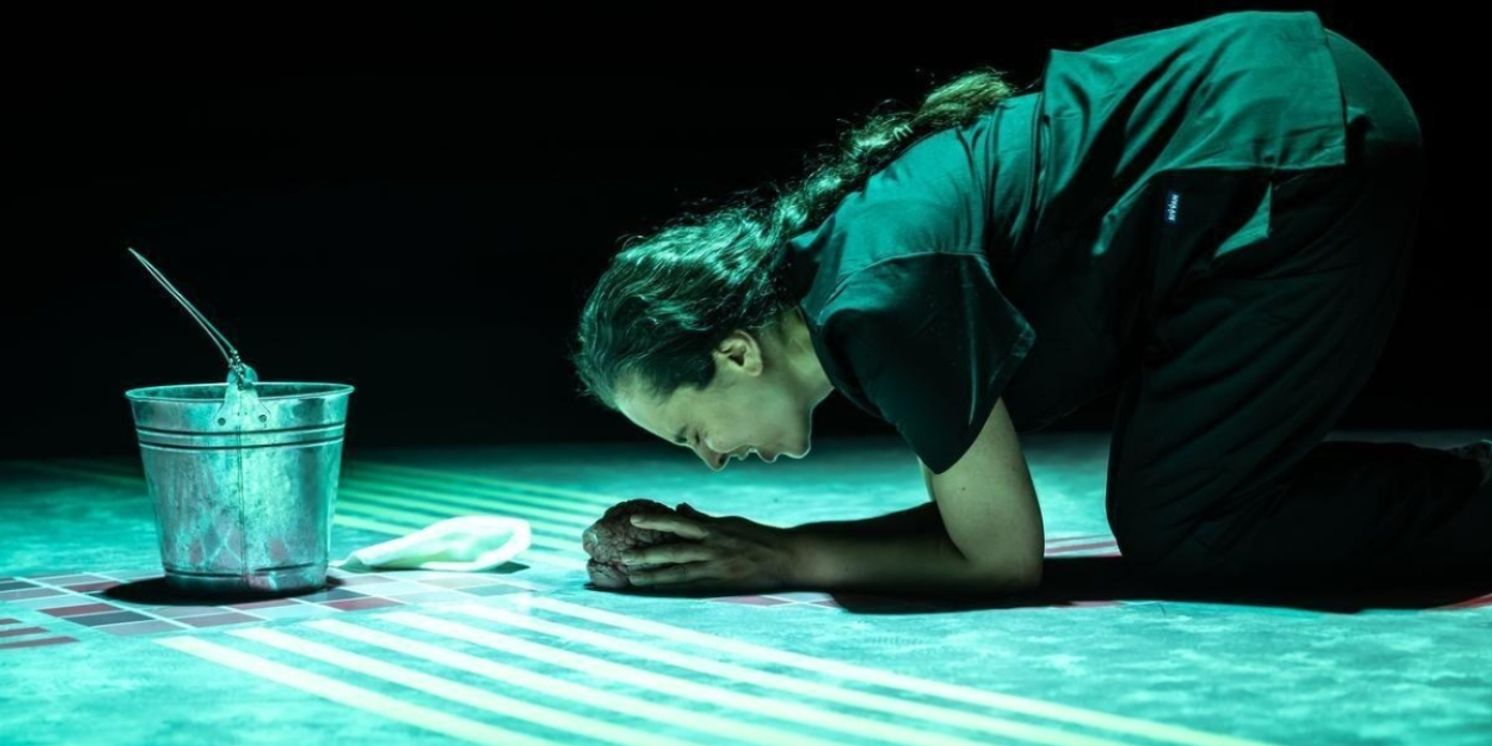Review: THE EFFECT at Coal Mine Theatre
The searing production's no placebo: The Effect is real.

The pandemic saw a boom in both stilted interpersonal relationships and the demand for brain chemistry-altering pharmaceuticals to attempt to combat listlessness and depression, in the wake of being asked to carry on as normal in a world that was anything but. As such, Lucy Prebble’s 2012 play THE EFFECT, now at Coal Mine Theatre, feels as or more relevant than ever in its exploration of antidepressants and drug testing studies. In asking the persistent questions of how much of what we consider love, the personality, and even the soul is of our own making, and how much is just chemical, Mitchell Cushman’s searing production immediately gets under your skin, and it’s no placebo.
Prebble’s show tells two parallel stories that intersect in a medical facility. Two young adult participants in a testing a new antidepressant find attraction and perhaps even love as their dosages increase. Tristan Frey (Aris Athanasopoulos) is carefree and impulsive, Connie Hall (Leah Doz) more studious (she’s working on a degree in psychology) and standoffish, but their behaviour changes as they get to know each other better. Is this a meet-cute, though, Connie wonders, or a blood-pressure-meter-cute? How much of their attraction for each other is their compatibility, versus the artificial circumstances, versus the drugs changing their brains? And is acting on their feelings potentially a moral issue, if one or both of them might be mentally compromised?
Meanwhile, researcher Dr. Lorna James (Aviva Armour-Ostroff), overseeing the drug trial, tries to keep her patients in line, while harbouring both a hatred for what she’s doing and old feelings for the man who got her the job. The man is psychiatrist Toby Sealey (Jordan Pettle), a med developer and conference circuit pro, where he showboats, giving TED-style talks while producing a brain from a bucket, and picks up young women. Dr. James’ staunchly anti-med feelings, stemming from her experience with severe clinical depression, come with a helping of self-loathing and a potential lack of impartiality toward the drug she’s administering.
The complex scripts has as many comedic highs and tragic lows as a pharmaceutical binge, underscored with James Smith’s effectively mechanized, rave-like, pulse-pounding music. It reaches its peak as Armour-Ostroff counts down the seconds to the fateful swallows—and then, checks over and under the tongue for possible subterfuge. The jittery, purposeful soundscape is there to remind you constantly of the darker side of the enterprise, where Big Pharma offers big money for the young, broke, and healthy to potentially sacrifice the latter, in results that may be scrubbed if unfavourable. Tristan and Connie’s participation leads to a romance, but not a simple romcom, as the risks of medical exploration are always threatening to come home to roost.
The set designed by Nick Blais turns chunky seats into examination tables, one snapped-up section at a time. A cross between a Muskoka chair and a rib cage, they echo the strange liminal space occupied by the characters. It’s part medical study, part enforced vacation resort: simultaneously away from it all and inescapable. That doesn’t, of course, mean that the characters don’t try their best to play hooky as things get heated, and with darkened lighting the set also recalls the elaborate tiled floors of an older, shuttered institution. Whether practices then or now were more barbarically focused on profit and maintaining social norms, the comparison suggests, is anybody’s guess. The production also uses brightly-backlit screens to project results, hypotheses, and the occasional scene behind the screen as characters get changed or confer in private.
Both character pairings crackle with tension and (dare I say) chemistry. Pettle has the veneer of charm of a doctor turned venture capitalist down pat, enough smarm to seal the deal with enough gravitas for plausible deniability. While it seems that Dr. Sealey does genuinely care for Dr. James, his condescending attitude toward her approach to mental health struggles is laden with patriarchal baggage.
As the two young lovers, Athanasopoulos and Doz are equally compelling to watch dance around each other, Tristan’s sweetly swaggering chutzpah turning into a twitchy, budding rage when joy becomes disappointment. And Doz imbues her character’s growth with complexity, going from a self-confident student sure that she understands every psychological test and goal, to a young woman letting her walls down to infatuation, to the realization that her actions might have dire consequences.
But it’s Armour-Ostroff’s portrayal of a woman desperate to feel something other than numbness, guilt, or worthlessness, that you’ll remember long after the drug trial is over and the trial of the rest of her life begins. It’s a reminder of how little we know about the organ that makes us who we are.
Photo by Dahlia Katz
Reader Reviews
Videos

